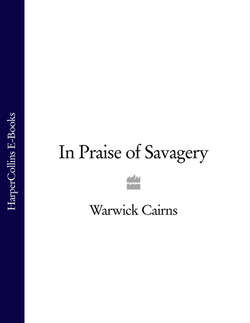Читать книгу In Praise of Savagery - Warwick Cairns - Страница 14
The Awash Station
ОглавлениеThe Awash Station was not an inspiring place to be at the best of times.
It was a low whitewashed bungalow, tin-roofed, built by the French and plonked down in the middle of nowhere on a wide, dusty plain, by the side of railway tracks that stretch off endlessly into the distance in either direction, linking Addis Ababa with what was then French Somaliland, and which is now called Djibouti.
Behind the station stood the optimistically named Buffet de la Gare, where lodging, of a kind, and food, of a kind, could be obtained by travellers who had no other choice.
For the fifteen Abyssinian soldiers who had been chosen by their superiors, on Government orders, to await the arrival of the Englishman, it was even less than inspiring.
It was to be these men’s duty to accompany him on his expedition to Aussa, to provide protection for his convoy—in much the same way, in fact, that the far larger party of Egyptian soldiers, with their two cannons, had provided protection for the Swiss Munzinger’s convoy in 1875—until, that is, they were all horribly murdered.
For the Danakil, it mattered little what a stranger did for his living, whether soldier, explorer or whatever: what mattered was the kill, and the all-important trophies to be obtained from them to increase a man’s status and his standing among his companions.
An earlier English traveller on the borders of their land recounted in his diary how one of his servants, accompanied by a Danakil guide, had gone down to the river to bathe. No sooner had this servant put down his rifle and stepped into the water than the guide picked the gun up, shot him dead, cut off his genitals with his dagger and went off back home with the trophy to celebrate his achievement. And his fellow-tribesmen had, no doubt, slapped him heartily on the back as he recounted his story, and roared with mirth at the details, exclaiming, ‘What larks!’ or its Danakil equivalent, and accounted him a mighty fine fellow for what he had done.
So when the Englishman did turn up, eventually, at the Awash Station, the soldiers made no secret of their lack of enthusiasm for him and his scheme; and they were altogether less than diligent, and altogether less than enthusiastic, in helping load up the camels and doing whatever else it was that he expected them to do.
Nor was the mood lightened in any way by the recent announcement by the inhabitants of Bahdu, one of the biggest Asaimara territories along the course of the Awash River, that they had renounced any semblance of allegiance to the Government, and that furthermore they would refuse to pay any tribute demanded of them. And if the Emperor didn’t like it, he could stick it in his pipe and smoke it. Or words to that effect.
Thesiger, meanwhile, was more concerned about the fact that in the circumstances someone in authority might take it into his head to cancel his expedition; and, sure enough, he soon received a telephone message from an official saying that there was now fierce fighting in the province, and that the expedition would need at least a hundred armed men to stand more than one chance in ten of survival; which, of course, was quite out of the question. In the circumstances, therefore, his fifteen soldiers would be recalled forthwith, and he would be best advised to go back to wherever it was he came from and forget all about it. To which Thesiger responded by pulling rank—reminding the official that the Emperor himself had authorised the journey—and then by bribing the Awash Station telephone operator to stay away from his office, so that no further communications would be able to get through.
And so it was, on this happy and optimistic note, that the party loaded up their camels and set off into the wilderness.
